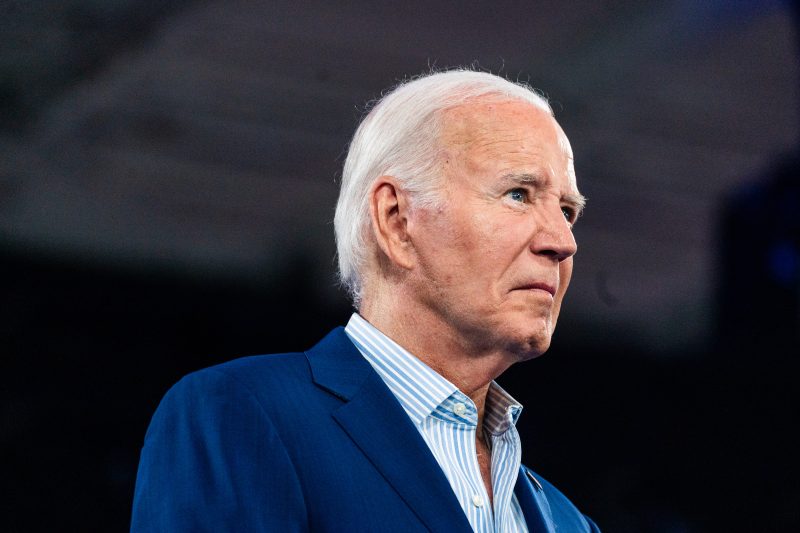The wide differences in how voters view Trump and Biden

There is a lot of polling out there at the moment, much of it measuring views of an election that’s nearly a year away between two people who might not be on the ballot. Polls about the 2024 presidential contest carry a number of caveats, including those, so while they’re useful as measures of the moment, they should also be taken with a grain of salt.
But there are ways to make those polls more informative. CNN, for example, in a poll released Tuesday, included a battery of questions meant to evaluate how people viewed the comparative leadership qualities of Joe Biden and Donald Trump. Particularly when considered in the context of different demographic groups, the responses are revealing.
CNN’s poll, conducted by the firm SSRS, mirrored most other polls in showing a close national margin between Trump and Biden. Neither candidate earned a majority of the vote, although Trump did pull a majority among White voters (and Biden among non-White voters). Independents were more likely to say they would never vote for either candidate than to say they supported either of them.
And then there were the candidate-quality questions. CNN asked respondents to evaluate seven phrases, deciding whether they applied to Biden or, separately, to Trump. Whether the candidate “cares about people like me” or is an “effective world leader.” Things like that.
The results were striking. Respondents were much more likely to say that Biden “respects the rule of law” than they were to say the same of Trump. But Biden fared very poorly when respondents were asked whether he had “the stamina and sharpness” to serve as president. Neither candidate did particularly well when respondents were asked whether they would be proud to have the candidate as president, although Trump fared better than Biden on this question, even as Biden got better marks on trustworthiness.
The comparison below pits the responses for the candidates against one another. Dots that sit in the light-red area indicate that the demographic group said the question or trait applied more to Trump than to Biden. Dots in the light blue show that the group thought the question applied more to Biden. The farther from the diagonal line, the bigger the gap between the two candidates. The farther a dot sits from the bottom or left-hand edge, the larger the percentage of that demographic that believes the trait applies to Trump or to Biden, respectively.
The questions about candidate quality are arrayed from those on which Biden has the bigger advantage to the ones where Trump does. You can see that the cloud of dots slowly migrates from the blue-shaded area to the red-shaded one. Older voters and non-White voters tend to sit at the right edge of that cloud — more Biden-supportive than Trump-supportive. White voters tend to be at the top: more Trump-supportive.
Notice, too, that the dots often pass to the right of the vertical white line marking 50 percent, meaning that a majority of some demographic groups often say that the trait or characteristic applies to Biden. Only rarely are there dots above the horizontal white line; only on stamina and (for White respondents) global leadership does a majority say the characteristic applies to Trump.
Some of the characteristics seem rather contradictory. Trump is viewed as less respectful of the rule of law and less trustworthy, but he has the overall advantage on whether people would be proud to have him as president? But notice that the clouds of dots on those three questions are at about the same height, under the horizontal 50 percent line for Trump. The cloud simply shifts to the left on the “proud” question, less an indication that people would be proud to have Trump as president than that Biden lacks the (small) advantage on this question that he has on honesty.
It’s hard not to view these results and think that the stamina question carries outsize weight. Obviously, voters choose candidates on the basis of factors beyond personal qualities, but this question of mental acuity is the only one on which Trump has a clear advantage. Only a quarter of respondents said this characteristic applies to Biden, down from 44 percent in 2019.
It’s also hard not to notice how little wiggle room the candidates have. Forty-five percent say they’ll back Biden — but 51 percent say there’s no chance they will. That leaves less than 5 percent who might move. The numbers for Trump are similar.
This is probably the defining quality of the likely 2024 race: Neither candidate is viewed particularly positively, and the support each enjoys is lower than the flat opposition to his opponent.
But then, they each have a year to try to change voters’ minds.




